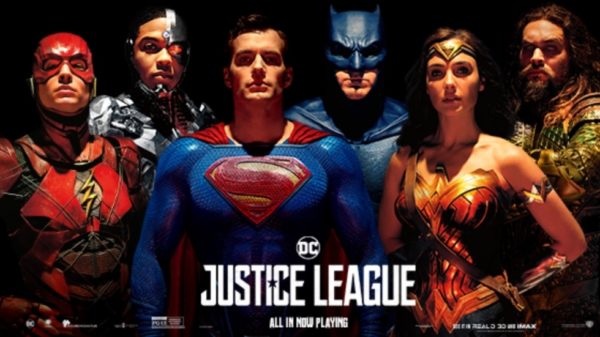Anghus Houvouras on whether franchise blockbusters are too big to fail…
Sequels, prequels and reboots. Hollywood is in love with the familiar because more often than not it’s a safe bet. This year’s monumental blockbuster clusterfuck Justice League is proof of that. Can you think of a big studio film more maligned? More inherently flawed at a fundamental level? It was the product of short-term thinking and absolutely baffling choices from a studio realizing a creative vision can’t be hacked and slashed into existence.
And yet, in spite of a long laundry list of poor decisions and questionable calls, Justice League will end up losing around $100 million. In comparison, Valerian and the City of a Thousand Planets is projected to lose almost $150 million. Justice League wasn’t just an unmitigated disaster. It was a franchise stress test. Proof that these familiar characters are the safest bet in blockbuster cinema.
2015’s Terminator Genisys was a dumpster fire of a franchise film. After a disastrous release and reception, there were talks that the Terminator franchise might be mothballed. But then James Cameron got involved and we’re already talking about Terminator 6. The financial floor for these existing franchises is significantly higher than other original projects or attempts at launching a new franchise.
The real issue going forward is the possibility of diminishing returns for existing franchises that are either running on fumes (Transformers, X-Men) or have delivered a poorly received installment or two and deciding to reboot or continue on (Alien/Prometheus, The DC Extended Universe).
Justice League will be the largest loss for Warner Bros. since Man of Steel started their real march towards a connected cinematic universe. Had they not plunged the film into absolute chaos with their terrible choices and dumping money into ‘fixing’ it, the movie could have been a break-even proposition at $600 million worldwide.
The fact that these franchise movies are safer financial bets is nothing new. But with Justice League what we’re learning is that even these franchises can’t ever truly fail. They can only underwhelm, disappoint and achieve a less favorable financial position which leads studios to either keep going or reboot.
20th Century Fox is in a similar place right now, having watched their X-Men franchise go from bringing in $750 million worldwide (Days of Future Past) to a hair over $540 million dollars (Apocalypse).
But even when something familiar flops, like Universal’s ridiculously awful Mummy, it’s flopping to the tune of $400 million dollars. To give you some perspective, the award-winning and universally praised Mad Max: Fury Road only made $375 million. In spite of the financial failure, Universal will try again with The Mummy and other characters from their stable of intellectual properties. It’s simply a matter of time.
Audiences are giving no reason for the studios to stop the sequels, prequels and reboots to these series. They are still far safer bets than tent pole failures like John Carter or Jupiter Ascending. There are franchises that can simply reboot because they are staples of pop culture and therefore, too big to fail. Not all franchises are too big to fail. Blade Runner 2049 proved that you can’t just dust off every influential geek film and create a hit. Still, Tron: Legacy made $400 million dollars.
Perhaps the reality is franchise blockbusters are too big to fail as long as they are affordably produced. The sting of Justice League would have been less painful if the movie hadn’t cost close to $300 million dollars all in (tee hee). I realize the production budgets on most of these massive blockbusters starts at around $150 million, but if producers and studios could figure out more creatively clever ways to produce these franchise installments with a more reasonable budget, they could make their franchises more interesting and more profitable.
Deadpool and Logan were solid proof that a modestly budgeted blockbuster with a strong character focus could make bank and be a strong entry for the franchise. Even if these films hadn’t been massive hits, 400 to 500 million would have been a nice win. Not every franchise entry is going to blow up huge, especially considering the increasing volume of these types of films.
Disney purchasing assets from Fox shouldn’t be a surprise. They’ve figured out the formula for success: a steady stream of franchise films from mega-popular pop culture staples like Star Wars and Marvel. I have no doubt they’ll continue to gobble up intellectual properties knowing that at the right price, these blockbusters are simply too big to fail.
Anghus Houvouras













